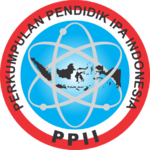A META-ANALYSIS STUDY OF IMPLEMENTING ACTIVE LEARNING STRATEGY TO IMPROVE STUDENTS’ COGNITIVE LEARNING OUTCOMES IN JUNIOR AND SENIOR HIGH SCHOOL FOR BIOLOGY SUBJECT
DOI:
https://doi.org/10.26740/jppipa.v7n1.p22-29Keywords:
Meta-analysis, Active learning, Cognitive learning outcomes, BiologyAbstract
The quality of good education can be seen from the learning process which is carried out. A few phenomena occur in relation to learning problems which is caused by students’ lack of interest and poor learning outcomes in Biology subject. This research aims to find out the improvement of students’ learning outcomes in Junior and Senior High School Biology subject using active learning strategy through meta-analysis study. This research was a literature review study through meta-analysis research design with a proportion. The articles were found on the website of international journal, accredited national journal, and non-accredited national journal, proceedings, undergraduate thesis, and repository. Those articles were validated by adapting three criteria, which were up to date (last 10 years) and PTK with Minimum Completeness Score of 75. Therefore, 30 articles were obtained from two international journals, four national journals, 17 accredited journals, and three undergraduate theses. The data were analyzed using Cohen’s effect size technique. The result of the meta-analysis research showed that an active learning strategy was able to improve students’ cognitive learning outcomes in Biology subject with an effect size average of 0.857 in the big category. The learning model that had the highest effect size score was a team quiz possessing effect size score of 0.975 in the big category. The result of the Q test for homogeneity was 26.833 and the p-value was 0.001, meaning homogeneous. The Z test result was 78.540 and the p-value was 0.01 which showed significant analysis results. The florest plot result of students who completed was around 86% which showed that students who completed the KKM were more than 75%. The result of Eiger’s Test p-value was 0.527, meaning that there was no bias on publication of the meta-analysis study which was conducted. The Fail-Safe N score was 65485 and p-value was 0.001, meaning that there was no bias on publication of meta-analysis study, so it could be scientifically justified.
References
King, W. R. ., & He, J. (2005). Understanding the Role and Methods of Meta-Analysis in IS Research. Communications of the Association for Information Systems, 16(October). https://doi.org/10.17705/1cais.01632
Kurniawan, M. K., Keliat, N. R., Krave, A. S., & Hutagaol, D. R. (2017). Penerapan Pembelajaran Aktif Berbasis Tugas Proyek untuk Meningkatkan Hasil Belajar IPA Siswa Kelas VII B SMP Kristen 2 Salatiga Tahun Pelajaran 2016 / 2017 Active Learning Application Based on Project Assignment in Improving Science Learning Results of S. Bioedukasi, 10(1).
Mulyasa, E. (2003). Kurikulum Berbasis Kompetensi : Konsep, Karakteristik dan Implementasi (Edisi 1). Bandung : Remaja Rosdakarya.
Retnawati, H., Apino, E., Kartianom, K., Djidu, H., & Anazifa, R. D. (2018). Pengantar Analisis Meta (Issue July).
Risman, Z. (2017). Pengaruh Model Pembelajaran Kolaboratif Terhadap Hasil Belajar IPA Peserta Didik Kelas V MIS DDI Bosalia Kabupater Jeneponti. In UIN Alaudin Makassar (Vol. 4). UIN Alaudin Makassar.
Downloads
Published
How to Cite
Issue
Section
 Abstract views: 518
,
Abstract views: 518
, PDF Downloads: 545
PDF Downloads: 545











